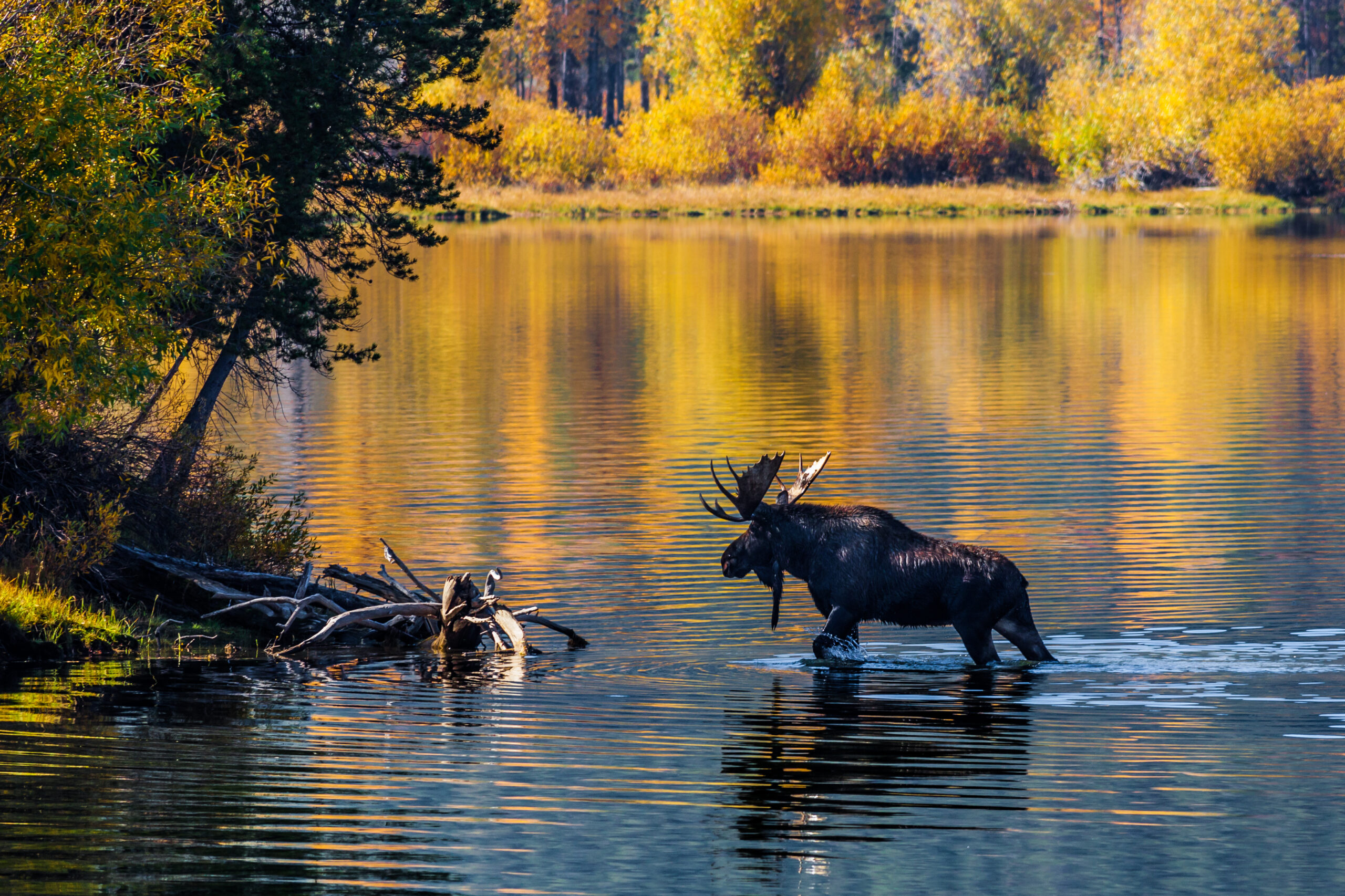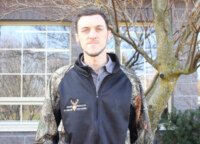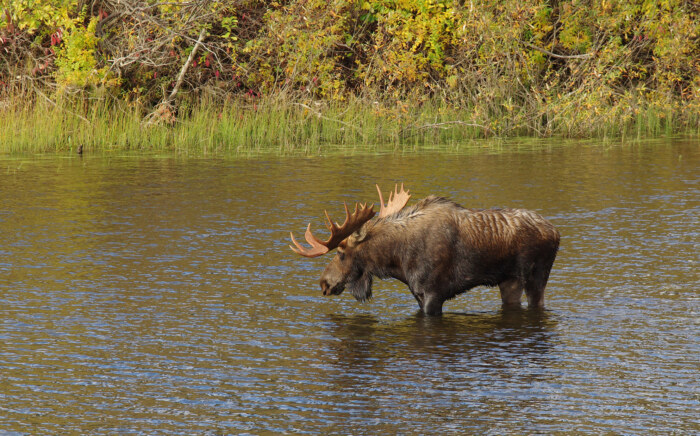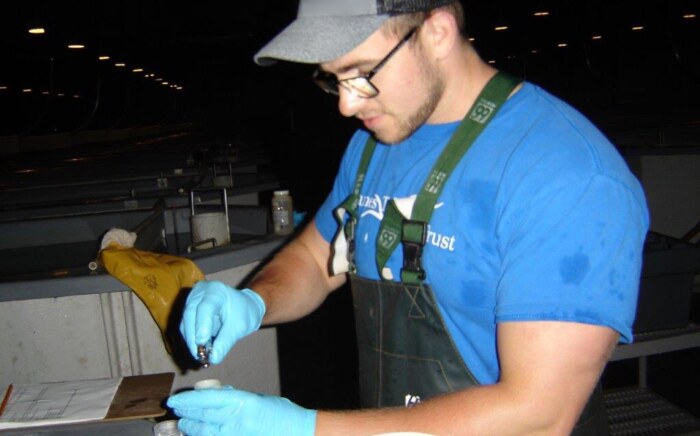The government’s connection to northerners, conservation-leaders and hunting license-fee contributors appears to be dropping lower than the odds of drawing a moose tag.
Faster than you can say “tag cuts,” the Ministry of Natural Resources and Forestry (MNRF) will lose another few thousand customers. Meanwhile, northerners will continue to wait for government to fully address the major contributing factors of declining moose populations that are not related to licensed hunting.
Since the early years of the selective harvest system, the Ontario Federation of Anglers and Hunters has played a leading role in speaking up for moose management and moose hunters. Lately, Ontario’s moose management program is poised for another significant change as a result of moose population declines in many areas of the province. In 2015, a second consecutive year of drastic tag cuts and shortened hunting seasons will dramatically change moose hunting in some areas. Hunters have long recognized that there are localized problems with our moose populations. Moose hunters are passionate about maintaining healthy moose populations for current and future generations, and will never give up the fight for better moose management.
Conservation of the moose resource must remain the top priority, but the OFAH insists there is still an opportunity to optimize hunting opportunities while allowing the resource to recover. Hunter restrictions cannot be the only response to declining populations. The OFAH has been calling on the provincial government to make moose management a priority, to secure funding for more frequent and accurate population assessments (including aerial surveys), and to actively promote hunting as a legitimate recreational activity and valuable wildlife management tool. Without hunters, the wellspring of funding for wildlife management will dry up and the MNRF will lose the people who care the most for, and largely fund, moose management.
Every day the OFAH hears from its members who are justifiably concerned about a lack of transparency and accountability in the moose management process, a lack of clear objectives and established targets, ongoing problems with the moose tag draw, and the perception that the priorities of the MNRF appear to be drifting further away from hunting.
“My moose hunting party hasn’t drawn a tag in our wildlife management unit in years…” writes hundreds of Ontario moose hunters annually. Hunters turn to the Ontario Federation of Anglers and Hunters which helps scrutinize the government’s moose tag allocations, and shares moose hunters’ local insight at the highest levels, including annual meetings with the Provincial Big Game Management Advisory Committee and face-to-face with senior MNRF staff. Year round, the OFAH’s Angler & Hunter Television, Angler & Hunter Radio and Ontario OUT OF DOORS magazine, communicates our members’ position on bears, wolves, land use, Aboriginal affairs and the need for government action on core wildlife management programs.
After years of management techniques that have included little more than hunter manipulation, moose hunters are becoming increasingly frustrated that their commitment to conservation is not being matched in other critical areas of moose management. Hunters continue to sacrifice hunting opportunities, all while waiting for government to tackle important issues that aren’t related to licensed hunting. Moose hunters are losing faith in government, and as a result Ontario is losing them at an alarming rate – often to other jurisdictions where the odds of receiving an adult tag are perceived to be higher. Some have simply given up moose hunting altogether. In 2014, 6,000 fewer moose licences were sold than in 2013, amounting to a loss of $312,000 in direct funding for wildlife management. This figure doesn’t include the loss of indirect economic benefits, which are most sharply felt in northern Ontario. On average, a moose hunter spends about $1,000 annually on fuel, accommodations, food, etc.; apply that to over 100,000 hunters and it’s not hard to see that the value of moose hunting to our economy extends much further than licence sales. In all likelihood, this is only the initial step in a decline that will continue for years to come. If moose hunting makes such an important contribution to our economy and the quality of life for so many Ontarians, why do moose hunters feel they are being ignored by our provincial government?
The Ontario Federation of Anglers and Hunters fights tirelessly every day just to prevent the slow erosion of our hunting heritage. The OFAH does not simply criticize the government’s approach to moose management, or ask for someone else to bear the burden of declining moose populations. It is the expertise of members, board of directors, advisory committees, and staff biologists that is drawn on to make recommendations to government that are realistic, achievable, and tackle all of the factors limiting moose populations. The Federation understands that hunters have a role to play, but is not satisfied with them being the first, and often only solution for all of the wildlife management challenges in Ontario.
For just a moment, hunters should try to set aside the finer details of what they are seeking for moose harvest management, and ask themselves – are they comfortable being the only lever used to manage moose? Or is it time for the government to look at the big picture and truly evaluate the impact of other factors on moose populations?
Relying on hunter restrictions to manage moose may be the quickest and simplest action, but it is short-sighted. The MNRF has acknowledged contributing factors beyond licensed hunting and have made a commitment to address these other factors. The OFAH will work to ensure the government makes good on this promise. Moose hunters need to help the Federation remind government how important they are as true stewards of the resource. Not only are moose hunters the eyes and the ears out on the landscape, their licence dollars make them the single greatest funding contributor to moose management in Ontario. Without moose hunters, what will the future of Ontario’s moose look like? Help the Ontario Federation of Anglers and Hunters push for management that will help to recover declining moose populations, while maintaining our hunting heritage.
-written by Mark Ryckman, OFAH Senior Wildlife Biologist and Robert Pye, OFAH Manager, Business Development & Corporate Messaging for the Outdoors Guide (Chronicle Journal, May 2015)





Leave a Comment